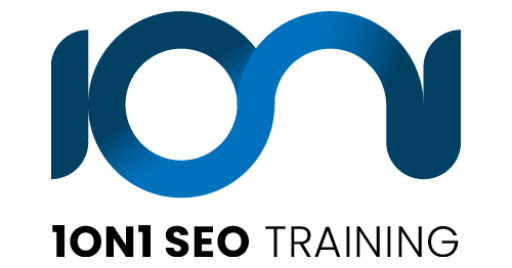Creating a website is the first step in developing a marketing strategy for your new or current business. Your site is a cornerstone. However, cornerstones are just that – foundations of a much larger structure. They're insufficient in the long term. SEO training becomes necessary if you want to start optimizing your site today.
Remember: what genuinely counts is what you create on top of your foundations.
SEO is a highly profitable but competitive digital marketing channel.
Due to its complexity, it may appear to many business owners as a distant fantasy, leading them to make the blunder of ignoring it entirely.
SEO training answers the call for a step-by-step approach to learning SEO.
SEO strives to generate organic traffic to your website by improving your website's ranks on different search engines.
While Google has led the pack for many decades, it would be erroneous to ignore potential traffic from other search engines - and optimization plays a crucial role in generating organic traffic from these different places.
A reasonable SEO strategy from an SEO trainer with expertise can serve as the bedrock for properly auditing and optimizing your website and content. Just imagine - even your website's domain is related to SEO, which is all the more reason to incorporate it in your pre-website marketing strategy.
But how do you get there?
With regular SEO training, of course.
What are the Essentials of SEO Training?
Passion for SEO is the most significant trait that SEO trainers look for. Of course, no one starts as an SEO guru, but you must have a genuine interest in learning new skills to grow your business.
SEO is developing at a breakneck pace. Therefore, you must be prepared to understand the fundamentals and continue your SEO training so that your business will also continue benefitting from your SEO knowledge.
Practicing SEO with your sites is an excellent approach to improve your SEO skills.
Having your website, no matter what it's about or how it ranks, is a requirement because it shows you understand the frustrations of website owners and are probably already obsessing over your visitor numbers or search rankings.
If you own a local company, invest in SEO training for your website. Create a personal blog if you don't have a business and pour your heart into it. The critical thing is that you're putting what you've learned into practice.
The inner workings of the most significant search engines are kept hidden. As a result, there is no manual out there that fully describes how Google's signals work precisely. However, SEO trainers with expertise have a cutting-edge advantage. They can take a look at the data and analytics and run tests.
This is how SEO trainers decipher the system. The main difficulty with speculations about search engines is that it is eagerly accepted as fact without any evidence if an idea appears plausible. Therefore, it's much better to work with an SEO trainer who relies on testing and factual evidence rather than hype or hearsay.
SEO training allows business owners to stay abreast of the latest developments in search marketing and site optimization.
Notes on Keywords
Keyword research is SEO companies' method to determine what search terms users type into a search engine when looking for information on a specific topic.
There are a variety of approaches to keyword research, but there is no one-size-fits-all approach.
It's critical to grasp the intent of search queries that connect with your business. Search intent will shape how you find keywords and how you apply them to your content.
There are three broad groups of search intents:
Transactional queries result in searchers making a purchase, completing a sign-up, or just engaging in online transactions.
Informational queries - These take place when the final goal is gaining information.
Navigational queries - The search wants to reach a website on purpose. The most common example is when someone types "Facebook" on a search engine.
Recognizing intent can help you make better keyword selection judgments and provide the best experience to your target audience. In addition, SEO training will help you understand what combinations of keywords will work best for your site.
Eyeing Your Competition
Competition research is another critical skill that you will learn during SEO training. Competitor research is an integral part of any SEO plan. Knowing your competition' search technique is precious for the reasons listed:
You'll have a good blueprint if you can reverse-engineer the tactics used by your competition if they are already ranking for important search terms.
Competition research will also reveal gaps in your competition's tactics. You will profit from these gaps as you fill the digital vacuum.
On-Page and Off-Page Tactics
The optimization of a website's on-page elements and features is called on-page SEO. This process involves the structure and coding of a website and any content posted on it.
Because you have absolute control over these elements as the site owner or webmaster, taking the time to get them properly is critical. You will learn the essential steps during a formal SEO training session.
On the other hand, a content audit is a type of review that involves the site's indexable materials. When auditing a website's content, you're usually looking at a range of data and measurements. Data includes the site's backlink profile, referred traffic, organic traffic, and so on.
Generally speaking, the site owner decides whether to modify, delete or retain a site's current content. You also have the chance to overhaul and improve old content, which is an SEO best practice.
Off-page SEO refers to techniques that are often used to boost rankings from beyond your site's reach. Off-page SEO is also taught according to your pace during SEO training classes.
When someone talks about off-page SEO, they're usually talking about link-building or other strategies that give the site in question more exposure or coverage.
The technical parts of on-page SEO, such as its mobile responsiveness, page speed or page loading time, and indexability, are tagged as technical SEO efforts.
Unfortunately, many new learners are off-put by the technical tag. Don't worry! Everything about SEO can be learned the same way you can learn how to cook for the first time. It's not nearly as frightening as it appears.
Also, you do not have to be an expert in IT or computer science to comprehend and apply technical SEO. SEO training will show you how you can fix any number of site problems, one at a time.
Get stated today!




